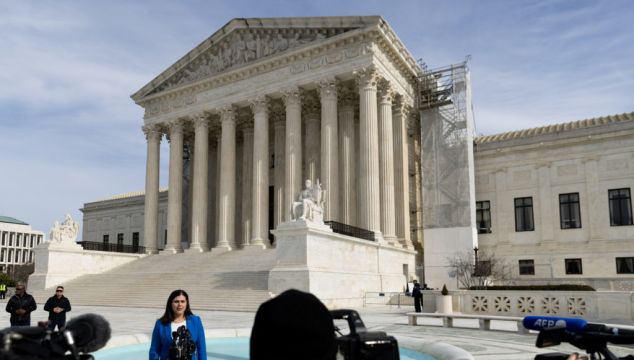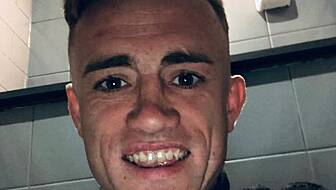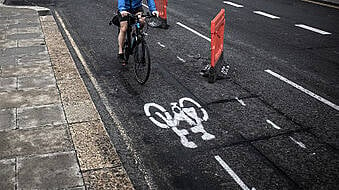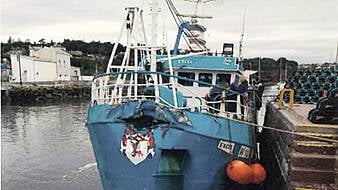The US Supreme Court is currently considering whether former president Donald Trump should be barred from Colorado's primary ballot, and a Maynooth professor's legal theory has become central to his defence.
Former president Trump is the frontrunner for the Republican party's nomination to face incumbent Democratic president Joe Biden in the November 5th US election.
The Colorado Supreme Court's December 19th decision disqualified him from the state's Republican presidential primary ballot based on language in the US Constitution's 14th Amendment for engaging in insurrection, involving the January 6th, 2021, attack by his supporters on the US Capitol.
However, the case is now being considered by the United States Supreme Court.
One of Mr Trump's primary legal defence centres on a theory from Maynooth University Associate Professor Seth Barrett Tillman. Prof Tillman has been promoting the theory for over 15 years.
Maynooth professor's theory
Prof Tillman's argument centres around Section 3 of the 14th Amendment of the US Constitution, which bars any 'officer of the United States' from holding office if they participated in an insurrection.
However, his argument is that the phrase ‘officer of the United States’ applies exclusively to appointed positions, rather than to elected ones. Thus, the president is not an “officer of the United States” as that phrase is used in the US Constitution.
Speaking to BreakingNews.ie, Prof Tillman explained: "The litigation is about an older provision in the US Constitution. That provision is the 14th Amendment, which was proposed by Congress in 1866 and ratified by the States in 1868, shortly after the American Civil War.
"It's a fairly complex provision. Within that provision, a clause speaks to a group of people called 'officers of the United States,' who are subject to the provision. Other positions also fall under the scope of that provision, eg, members of Congress, and members of state legislatures.
"The question is: Is the presidency such a position? The presidency is not expressly listed. If the presidency is covered, it is because it falls under the provision's generic 'officer of the United States' language. If the presidency is not covered, then a defendant is really not subject to the strict terms of the provision, unless that particular defendant falls under the scope of that provision for some position that he's held."
He pointed out that the case of Mr Trump is unusual, because he held no public positions, civil or military, before becoming the president.
"The only way for the disqualification provision to apply to Trump is if the presidency itself is an 'officer of the United States.' That might sound odd, but it gets tricky because the phrase 'officer of the United States' predates the 14th Amendment. It was used in the original constitution that was ratified by the States in 1787 and 1788.
"There are many judicial decisions that say that the phrase 'officers of the United States,' as used in the original Constitution, only applied to appointed positions, not to elected ones. The president is obviously an elected position.
"Whether the 14th Amendment used that phrase in exactly the same way is a difficult and contentious question... I suggest that it is used in the same way. That’s what my research supports. Of course, not all agree. And we have yet to hear from the US Supreme Court, which may or may not reach this particular issue."
Prof Tillman previously clerked for a number of judges in the US and taught constitutional law at Rutgers University School of Law in Newark.
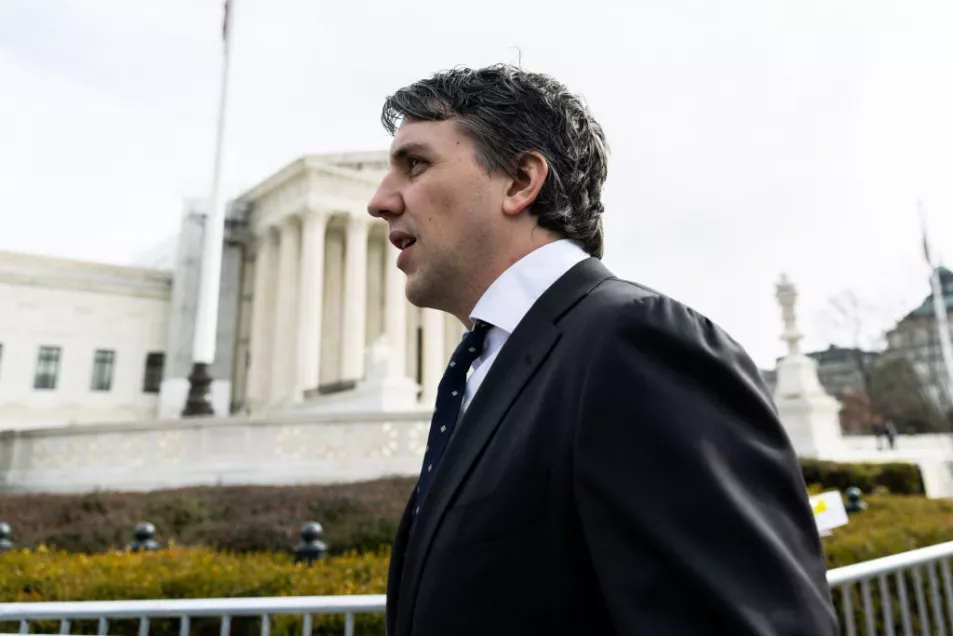
He was appointed as a lecturer in Maynooth in 2011, and he was promoted to associate professor some years later. His publications have continued to focus primarily on the US Constitution, although he has occasionally written on the organisation of the Irish court system - of which he is a persistent critic.
"The people who drafted the 14th Amendment came to their task immersed in a legal tradition for interpreting the US Constitution. I don't think they would have willy-nilly used the phrase 'officer of the United States' for the first time in a new way that was different from how it was used in the past. That isn't proof positive in support of my position, but there are other elements of evidence that suggest the president of the United States is not an 'officer of the United States.'
"That phrase is defined by the constitution itself, rather than a phrase to be understood in light of colloquial usage where one could rightly say that the president of the United States is an ‘officer of the United States.’
"That’s what makes this issue so difficult and contentious. Legal usage and tradition point in one direction, and mid-nineteenth century and modern intuitions about meaning may point in another direction."

He explained that the Irish Constitution is much easier to amend than the US one.
"The Irish Constitution, which goes back to 1937, already has had over 30 amendments. I'm not saying that's a bad thing, I'm saying it is relatively easy to amend. As a result, the Irish courts can be freer with regard to how they interpret it and how they understand it. If they make a mistake, it can be fixed.
"The American Constitution is quite difficult to amend. That difficulty has pluses and minuses associated with it. Still, the upshot is: if you allow the Justices of the US Supreme Court to import their particular views of what the demands of modern life are, in effect, you resign the whole government of the United States into the Supreme Court, and the democratic element of the constitution would recede.
There's a real risk in allowing the courts in the United States too free a hand in interpreting the US Constitution's provisions.
"There's a real risk in allowing the courts in the United States too free a hand in interpreting the US Constitution's provisions. I think in this debate on Section 3 of the Fourteenth Amendment, almost all players are trying to figure out what the original meaning of the provision was circa 1866-1868.
"There are very few people going before the courts, including the Supreme Court, saying 'it doesn't matter what it meant in the 1860s, it matters what the needs of today are'.
"This is true on both sides of this debate, so it's not unique to me or the position I'm advocating.
"The issue is one of national scope. Too many people believe the question is a simple one. In fact, it is not a simple issue; those that think it is simple are simply wearing ideological blinders. Of course, that is nothing new, particularly where a case has significant distributional consequences in the political realm, as this case does."
Prof Tillman said it is a nice coincidence to find his research at the centre of such an important case; however, he said it is not why he works in academia.

"It's certainly surprising. I picked this area of research many years ago in large part because I didn't think it would ever be litigated. It was more of an area for experimental inquiry that allowed me to write about a subject where I wouldn't be burdened with too much judicial precedent. I could talk about an abstract intellectual issue or ideal that didn't have distributional consequences.
"I've been writing on this and closely related issues since around 2007 or 2008. For many years, people have been telling me that I shouldn't be writing on this area because it could have no practical use, and it will never be litigated; so, I am as surprised as anyone that my ideas would become central to any litigation, much less national litigation before the United States Supreme Court.
"I wouldn't call it vindication... I get a chuckle out of it. It's not anything I'm proud of, because it came about as a result of fortuitous factors that I didn't predict, plan, or control. It's nice to see that people have a willingness to read my articles, but they're reading them because it's necessary to understand litigation that's important to them.
"My articles were written more for an academic readership who were interested in abstract questions. Not surprisingly, that’s a vanishingly small audience.
"It's one of the strange things about the academic world... whether your research can be used or fit into joints of the legal system has something to do with the quality of your work, but it also has much more to do with what litigation comes up by chance. Trump and the litigation that surrounds him are certainly some things that came up by chance. It's not like I created this situation. So, yes, in a small way, I'm glad some of these things have come about for me personally, but in the larger sense, it would have been better for all had there been no riots or violence on January 6th."
Oral arguments
Prof Tillman travelled to the US to attend the oral arguments at the Supreme Court of the United States on February 8th.
"I attended the February 8th oral arguments at the Supreme Court and one of the things I took away from it was how well-informed and prepared the justices were. They asked deeply probing questions to both parties.
"I've been considering these issues for 15 years, and I wouldn't say I was stumped by the questions, but, admittedly, I was glad I wasn't one of the lawyers up there."
He said he couldn't predict what the outcome would be, but he was surprised that the deliberations are still ongoing.
"The one prediction I made was wrong. I thought they would rule on this by February 22nd, that is two weeks after the oral argument.
"One of the reasons I thought it would be faster was because in Bush v Gore, there was a Supreme Court decision in a couple of days."
The ruling will be vital for the 2024 presidential race, and while Prof Tillman said he wasn't sure if it will go down in history like Bush v Gore, he said it is undoubtedly one of the most significant election cases of his lifetime.
"It's one of the most significant election cases of my lifetime. I'm not so sure if it's one of grand historical importance.
"It may turn out to be one of the cases we look back on as an odd one landed on us because of Donald J Trump and his many political opponents."
